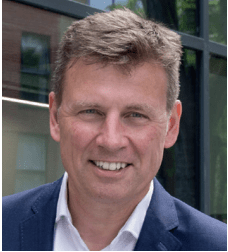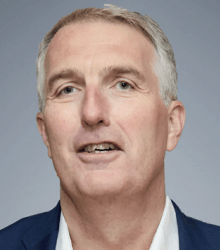How to lead through Sustainable Performance

In an edited exact from their new book, Stuart McLachlan and Dean Sanders explain why today’s business leaders must redefine success, and transition to a new era.
Sustainable Performance is a way of operating that unlocks value creation opportunities by placing the organisation in the service of an environmentally sustainable and socially just future. And we believe that the Sustainable Performance should be an adventure for organisations, one that will allow humanity to thrive indefinitely within the constraints of our planetary boundaries.
The nature of value creation for companies driving Sustainable Performance comes from unlocking value in both tangible and intangible asset utilisation. Such companies create programmes that operationalise sustainability in their manufacturing and supply chain base, but they also leverage that for further value creation in corporate or brand narratives.
However, the potential rewards must be set in the context of the potential risks. True value creation here is in the calibration of measurable impact and the leverage of this through the brand ensuring that the asset bases of businesses of different types and sizes can avoid becoming stranded, but can rather be redirected, redeployed, and reinvented to create new forms of value in a more sustainable world.
Businesses which embrace Sustainable Performance recognise that an enterprise that operates in partnership with nature, that flourishes within planetary boundaries, that unleashes human capital across the entire value chain, that instils resilience into the communities it serves, and that returns value to all stakeholders, will outperform. For businesses to survive long-term, we would argue that this is the only way.
We have assumed that we can deploy infinite models for growth and prosperity in a linear model whilst on a foundation of finite resources. We face a crisis that will demand a leadership response, and within that response we all have choices. We can hunker down, tick some boxes, buy time, and shore up our pension pot. Or, we can become leaders for our time: courageous, humble, heroic, and adventurous.
On the right track
For those leaders and organisations excited by the opportunities of choosing value creation through
Sustainable Performance, we suggest an evolution of the ESG acronym that sets out the three components of a successful future combining positive impact with Sustainable Performance:
- E for entrepreneurship
- S for spirit
- G for grit.
We see these not exclusively as qualities of individual leaders but the dynamics of successful teams – groups and coalitions of the willing inside organisations and in partnership between organisations. They apply to people, whole organisations, and platforms of collaboration in equal measure.
Entrepreneurship
Entrepreneurial thinking and endeavour is a critical starting point. It requires the courage to move beyond current ways of thinking and to be open to the new. It is about being wide-eyed to the reality of now and seeing opportunities in addressing the global challenges we face together. It is about pioneering, exploring, staying externally focused – on customers, suppliers, and other stakeholders – and finding new ways and new solutions to create common agendas. Entrepreneurialism describes the agility, ingenuity, appetite for risk, imagination, and opportunity focus needed to thrive and drive Sustainable Performance.
Spirit
By spirit we mean a number of things. It includes the ability to see further and more broadly and beyond yourself, your needs, and the narrower introspective constraints and considerations of the organisation. It is about openness, the ability to integrate heart and mind in decision-making, to exhibit humility and empathy in our relations with others and assume positive intent in the stakeholders we work with.
It is about imbuing our leadership with a spirit of service within the organisation and beyond its walls – to turn our strongholds into open and inclusive places of joint endeavour and protection. It is the ability to imagine and build projects and narratives of hope to inspire the loyalty of others to a common higher cause.
Grit
The pivot to Sustainable Performance is hard. It requires the resilience to stay on track despite the setbacks on the way. This grit and determination is required to stand up to the nay-sayers who will tell you that the Earth is flat and you must surely fall off its end. Grit will flow naturally to the people who have a passion to do in their lives and at work what they feel called to do. Individuals and teams will require great focus on outcomes, agility and flexibility in navigation and tenacity to achieve the final destination.
Based on our work with leaders and their organisations, we are convinced that this blend of
characteristics will:
- Rapidly transition businesses to the model of the
- next phase of the economy;
- Connect with the hearts and minds of customers;
- Attract the talent for the future;
- Appeal to investors looking for returns and not just
- business as usual and capital protection;
- Gain loyalty in supplier relations;
- Inspire change in the wider category; and
- Make a meaningful contribution at scale to the most material issues for the business and the specific area where it can make the most relevant and material global topics.
The business models we choose for Sustainable Performance will need to demonstrate financial performance to thrive. But they will equally need to perform in the context of their entire ecosystem of stakeholders inherent in the nature of stakeholder capitalism.
The leaders that people will want to follow in the future will be those who are bold and courageous, unafraid to embrace the world in all its chaos, to make difficult decisions and seek solutions through innovative, entrepreneurial thinking, seeing the fun in the adventure.
It’s time for us all to become unstuck. Unstuck from any of the business, political, societal systems, and models that have trapped us in an increasingly destructive way of living.
It’s time to reframe our definition of success, which has become an increasingly evasive word. Reframed into the reality that an existential crisis such as we face is the greatest leadership challenge we could ever imagine.
The leaders today are the first generation of leaders to have the unequivocal truth, and in this short window of opportunity – they are also the generation we rely upon to lead us across the transition and into the next era. This is the frame against which we need to measure success.
ABOUT THE AUTHORS



Stuart McLachlan (Left) and Dean Sanders are the CEO and Chief Enterprise Officer respectively at Anthesis, the largest sustainability specialist group globally. They are co-authors of ‘The Adventure of Sustainable Performance: Beyond ESG Compliance to Leadership in the New Era’, published by Wiley.

